
Give your leader feedback after a media interview
Give you leader feedback after a media interview. In this episode, insights on how PR and comms professionals can effectively provide feedback to senior leaders after interviews on TV, radio and podcasts. We discuss the importance of timing, focusing on positives, and constructive criticism to enhance leaders' media performance.
Navigating the challenges of giving feedback after a media interview
Ok, if you are a PR or Comms professional I know this is a headache. Giving constructive or mildly critical feedback to your CEO or someone more senior is a common pain point.
It may be you don't have the skills or confidence to tackle these issues head-on. Often you'll have leaders who are quite set in their ways when it comes to media appearances.
Maybe they take your briefing on key messages and just ignore them. Perhaps they'll head into a media interview and just do it their way. Infuriating.
So coming up, my tips on how to give feedback after a media interview.
Constructive critique: Improving media performance in executives
But first I think it would also be useful to briefly talk about how we do it during media training.
When we are giving feedback we generally do a series of on-camera interviews, perhaps five members of a senior leadership team and then watch them all back in collectively. Reviewing them in turn after each interview has been played.
Some colleagues although well-meaning can be terrible at giving feedback, so if they have something to say we ask them in advance to focus on the positive, while we the media trainers can give a more nuanced overview.
We do this to avoid people focusing on often quite unimportant and negative aspects of people's performance. For example:
"You blink a lot"
"Did you know you really wave your hands around?"
"You said erm and err a lot."
"You forgot to make that point."
More media training guides and podcasts

Is it ok to ignore a journalist?

Building your personal brand so journalists find you first

Media interview quick-start guide
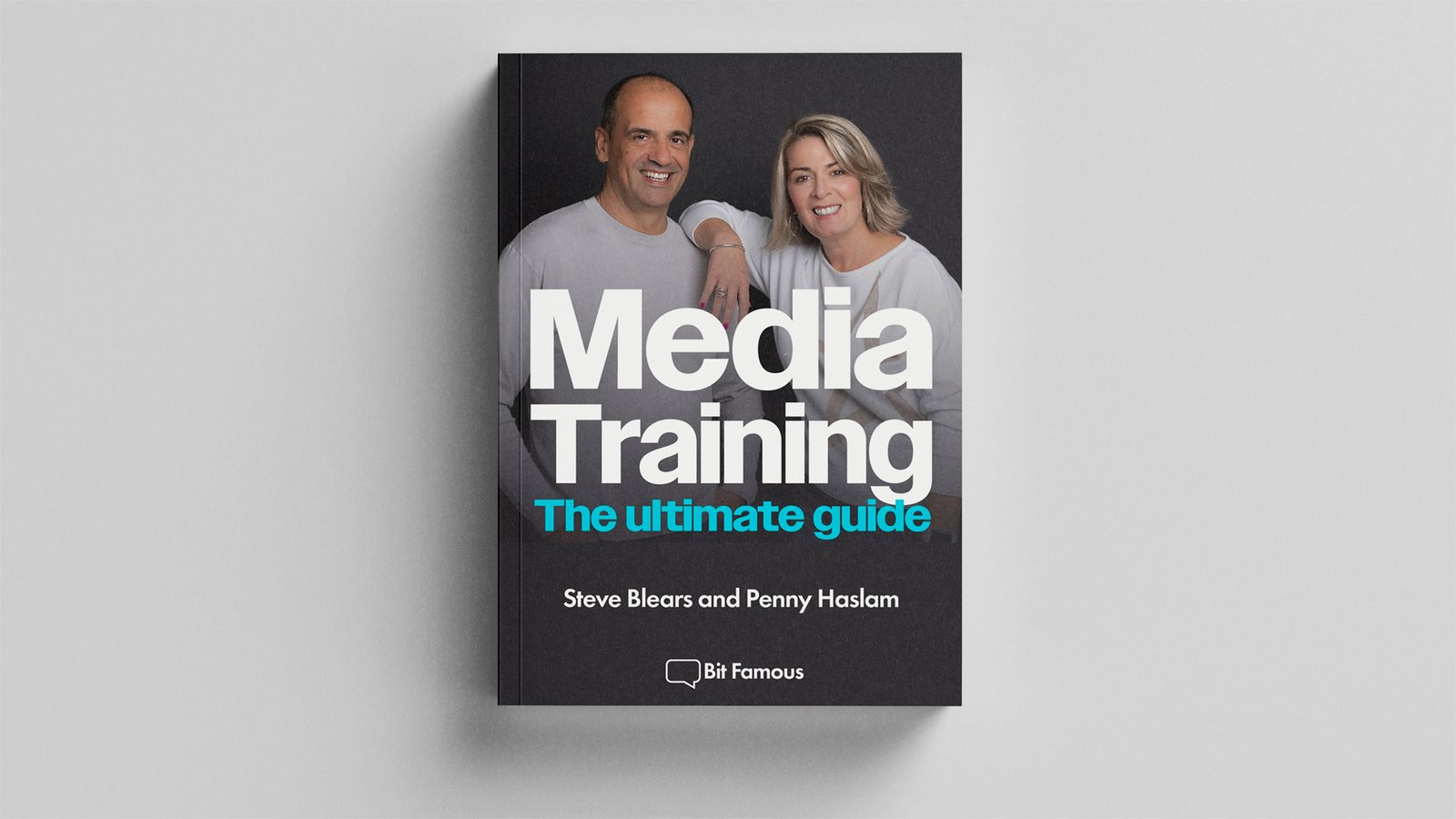
Media training book
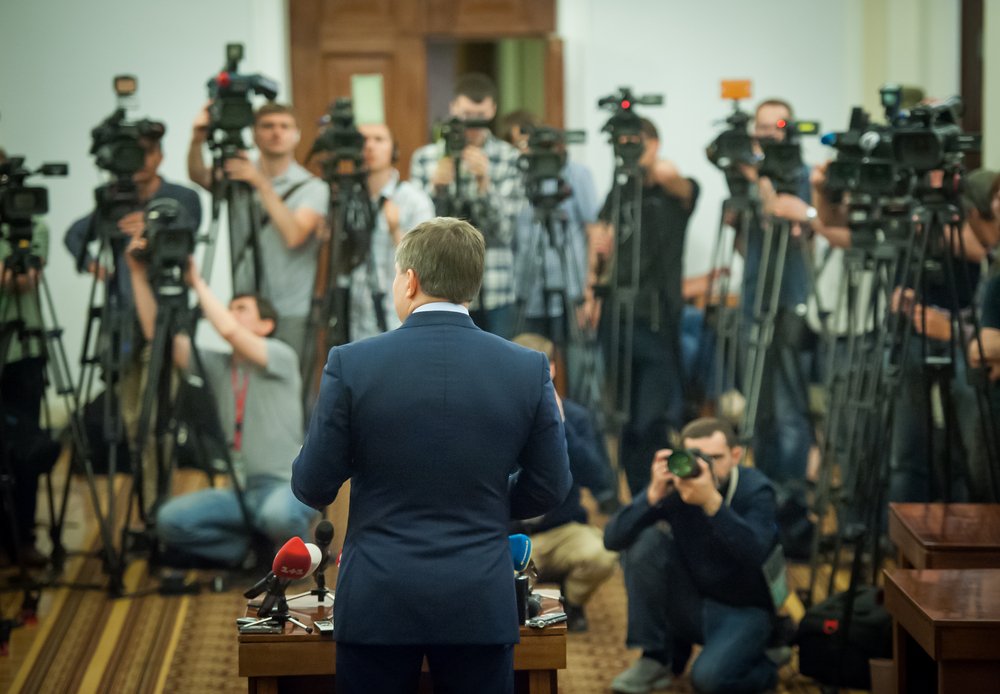
How to hold a press conference
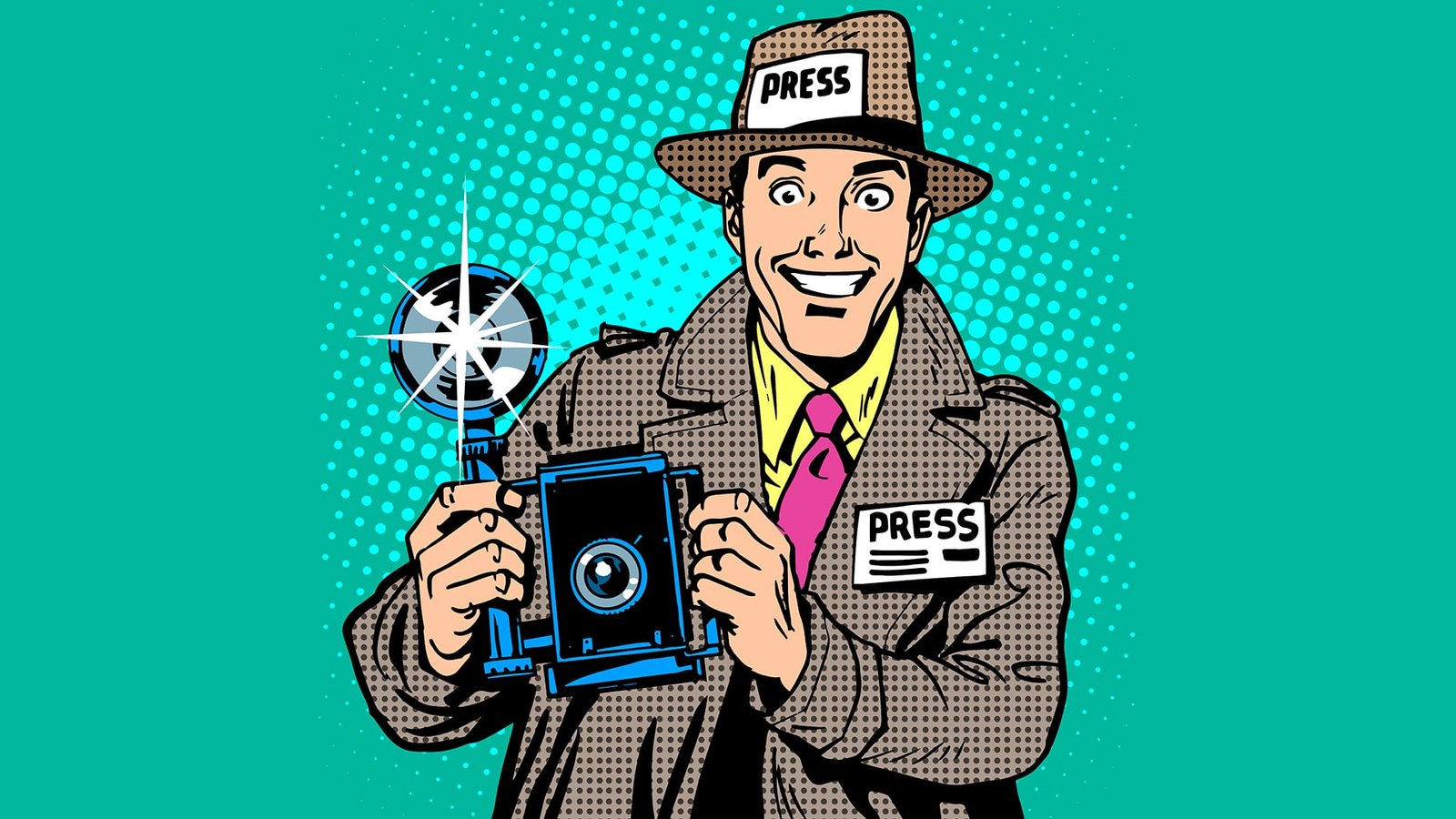
Time for a media training refresher?
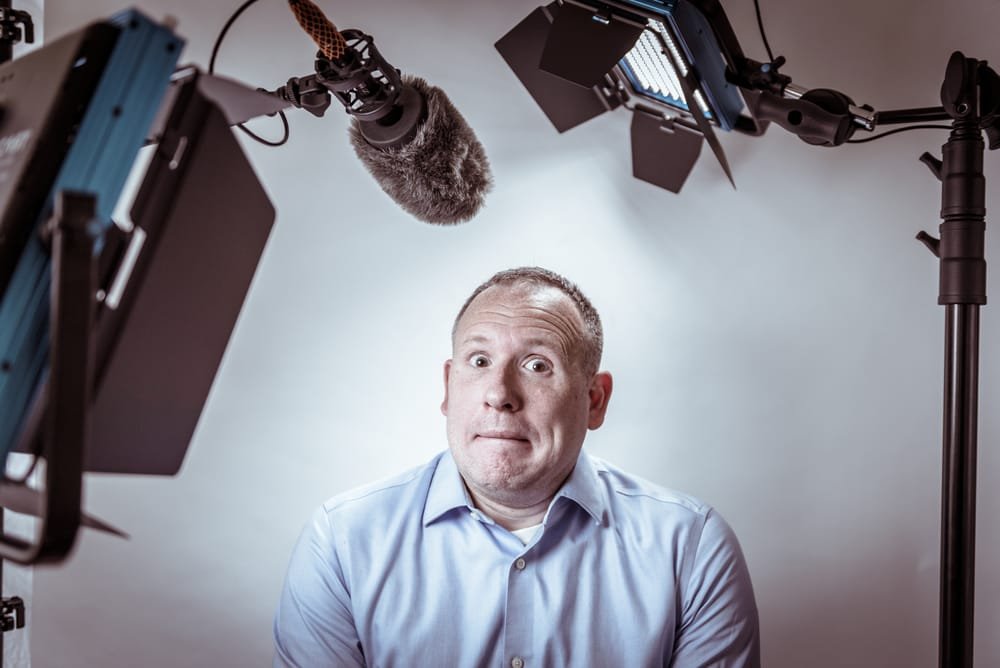
How to get your boss on board with media appearances

Is it okay to say “I don’t know” in a media interview?
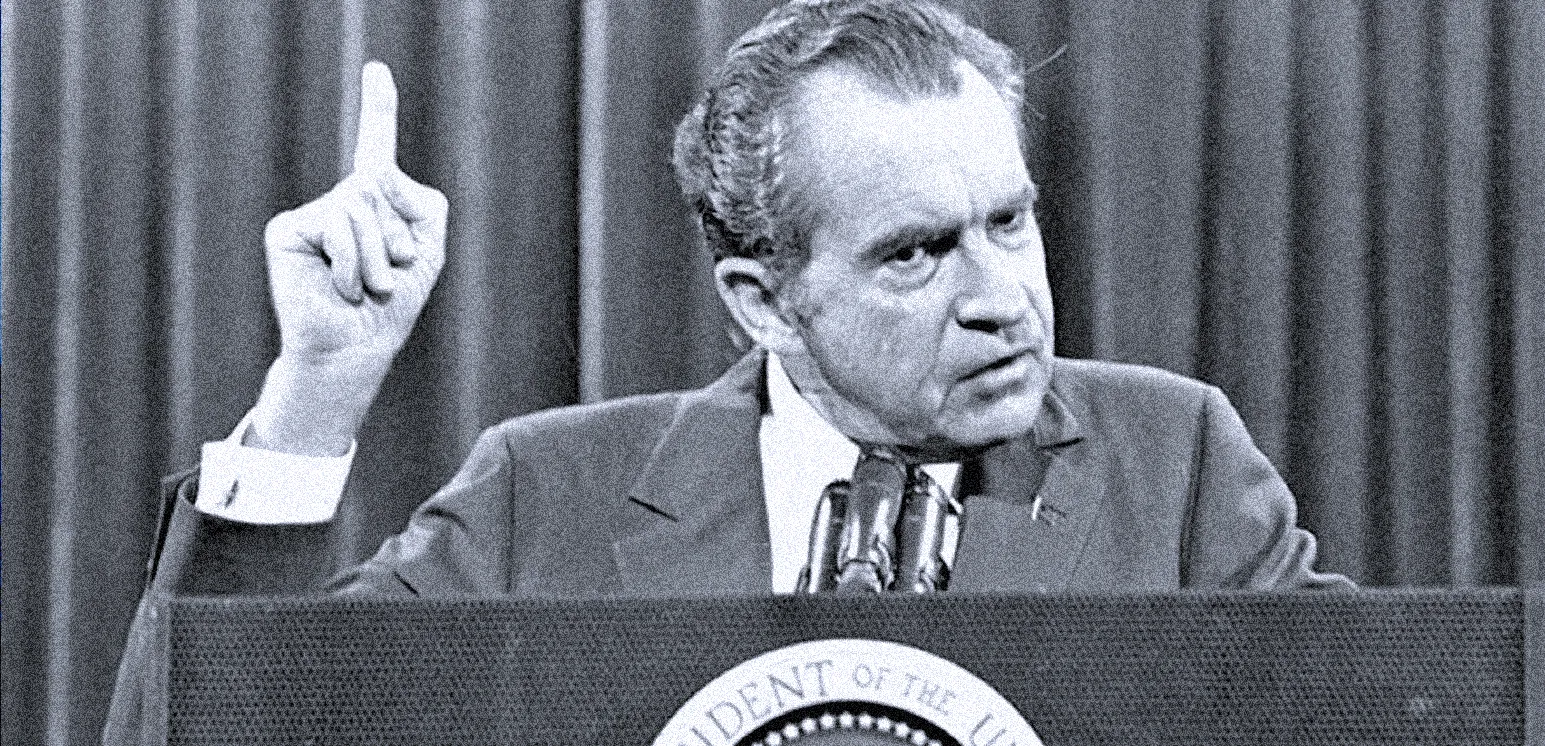
Why should you avoid repeating negative questions in media interviews?

How to look and sound relaxed in a media interview, performance tips

Mastering profile interviews in the media

Media appearances, the unwritten rules

Public apologies, how to say sorry in the media and mean it

Why off-the-record journalism is riskier than you think
When giving feedback on a media interview look at the big picture
This sort of feedback isn't constructive, as people grow in confidence, often over repeated media appearances they get much better.
Nit-picking on minor details is pointless. People rarely improve when you point these things out, they get worse.
It really doesn't matter what you do with your hands. If you wave your hands a lot normally during a conversation that's fine, do it on TV. Blinking, 'umming and 'erring we all do this a lot in normal conversations. Focusing on this level of detail is a waste of time in feedback. Can you see where we are going here?
How can a PR or comms professional give feedback on a media appearance?
My first tip is to video or record the interview. Just use your phone to record the video or sound. Because reviewing how they've done will be incredibly useful for them. If they are doing a series of interviews, record them all because people get better with practice even across two or three interviews.
Picking the right moment for feedback on a media interview
There are two approaches here. If the media appearance has just happened, keep your feedback brief and positive.
For a more detailed review, schedule a meeting where discussing the media appearance is on the agenda and your boss is in receive mode for a learning conversation.
Whatever you do don't ambush people with feedback. Don't wait to bump into them at the water cooler and launch into advice. Don't do that. They've got to be ready and in the right frame of mind.
So let's rewind a step and look at post-interview feedback when the interview has just happened.
Media interview feedback in the moment
Remember, straight afterwards, people are full of adrenaline. In my experience of interviewing thousands of people for both TV and live radio, two things happen immediately afterwards.
- They want to talk about how it went.
- They thought they were terrible. (In my experience women, in particular, can be much more self-critical, whereas balding men in their 50s usually think they aced it - when they didn't)
So post appearance, this is a great point for some supportive words, particularly if there are still more interviews to do.
You'll have watched the interview and probably have identified some areas of improvement. But, for now, focus on the positive aspects particularly if they are new to appearing in the media.
As discussed there's no point jumping in with specifics about their demeanour, nerves, verbal tics and hand waving.
Also, this isn't the time to review the video. Let your boss see that for themselves later.At this point, you could try saying, "Well done, how did that go?"
Your boss may reply: "I was so nervous, I think I messed up, my mind went blank!"
And you say, "Watching it, that wasn't my experience, In the short time allowed, you..." (dot.dot.dot)
Here pick three things that went well, you got a key message across, offered an opinion and illustrated your ideas clearly with a simple anecdote. Well done, that sort of thing.
Request a free media interview review
Just an aside here. Most leaders hate the idea of media appearances, they'd rather get tasered than appear on TV. It's incredibly exposing and confidence-sapping. That's why in our media training we focus on helping people communicate with confidence.
FYI did you know you can request a review of your media appearance from us? We'll watch or listen to it and create a personalised video containing supportive and useful feedback. Request feedback on a media appearance
Ok, plug over.
When is the right time to discuss your leaders' media interview
So, moving on. You've scheduled a meeting with your boss for a review of their appearance. Review is a more positive word than feedback.
This will create the right moment for a conversation, make sure you have enough time, avoid interruptions and distractions so everyone can focus.
Watch or listen back to the performance together, then here are some useful questions you can ask:
"Now, a few days have passed, how do you think it went watching it again?"
Replies will include, "Not as ****, as I thought at the time!" Great.
People will often highlight some minor physical issue with their appearance. Don't get into this. People look like - what they look like.
You could say, "I really didn't notice that." Unless of course, there is a glaring issue. Remember to offer solutions. They might say, "I was erming.."
You say, "Did you feel prepared enough? It can help to take a beat, or breath instead and slow down your delivery." That sort of thing.
There will be, I'm sure, a discussion about key messaging. You could then ask, "Did you feel the interviewer gave you a chance to get your key messages across?"
This is better than:
"Why did you completely forget to mention the key messaging we discussed?" Remember, this is a learning conversation, not a blame game.
Other great talking points are:
- "Did you feel you successfully managed to acknowledge and bridge away from a difficult question?" For example, "That's an important point but the real issue is here.."
- "I know you have strong opinions on a specific topic you raise, did you feel you had a chance to share them?"
- "Given another stab at this, how would you do it differently?"
Boosting confidence during feedback on a media interview
It's really about acknowledging the person being interviewed is in a vulnerable position. Being 100% satisfied with a performance is never going to happen. Satisfactory is what you are aiming for. Satisfactory is great. There's always room for improvement.
Oddly in my experience spokespeople, once given the right framework to answer journalists' questions get better very quickly with a little practice. And, counter-intuitively, the less they care and the less they worry, the better they get.
I'm not suggesting people wing it here, preparation is key. But going into an interview with a "this will be fine" frame of mind is where we want your boss to be.
So in summary. Try to look at the performance as a whole rather than being a vehicle for repeating key messages.
Media appearances are messy and imprecise, when you're giving feedback, especially to the higher-ups, it's all about striking that fine balance.
You're guiding, not grilling. Focus on learning not critique. Be constructive, and foster a space for confidence to grow. This way you'll also cement your role as a trusted, skilled adviser.
If your leaders need help with media appearances, get in touch at hello@bitfamous.co.uk, thanks for listening.

Is it ok to ignore a journalist?

Building your personal brand so journalists find you first

Media interview quick-start guide

Media training book

How to hold a press conference

Time for a media training refresher?

How to get your boss on board with media appearances

Is it okay to say “I don’t know” in a media interview?

Why should you avoid repeating negative questions in media interviews?

How to look and sound relaxed in a media interview, performance tips

Mastering profile interviews in the media

Media appearances, the unwritten rules

Public apologies, how to say sorry in the media and mean it

Why off-the-record journalism is riskier than you think
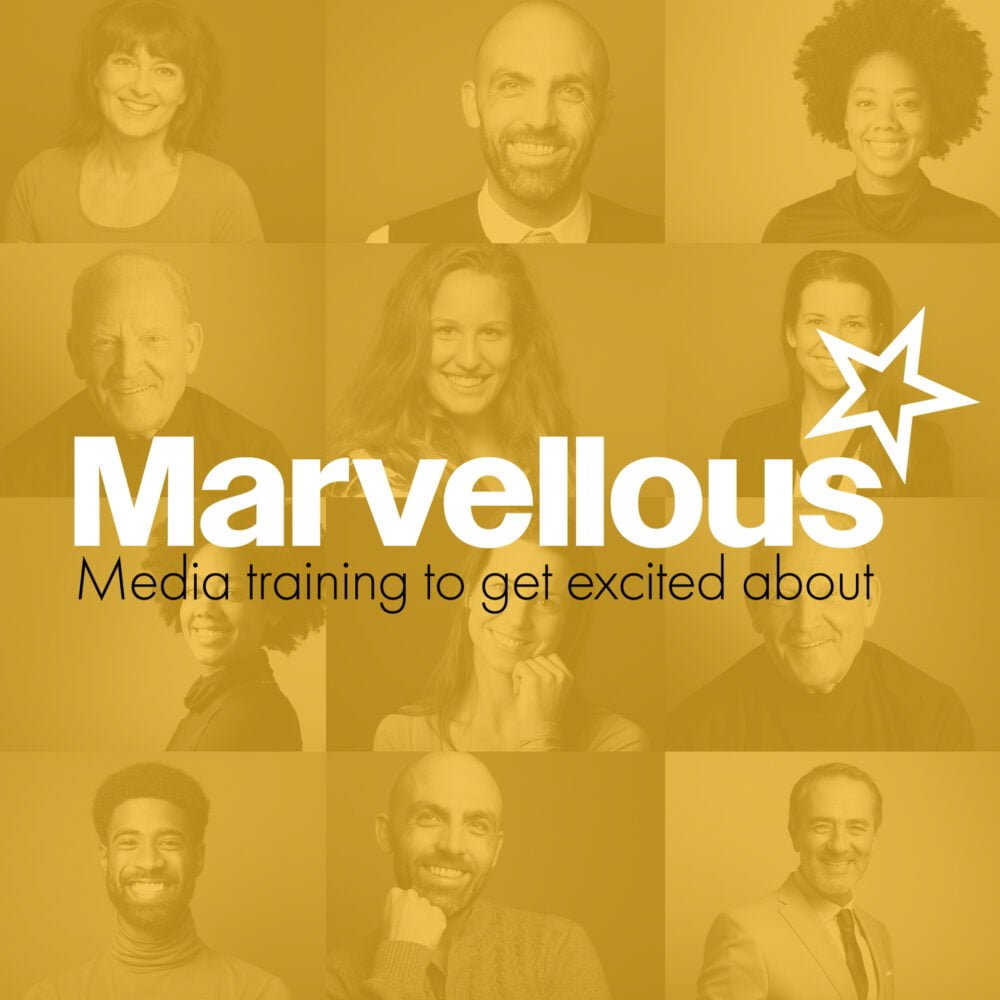
What are key messages in the media?

Give your leader feedback after a media interview

Why avoid corporate speak and office jargon in media interviews?
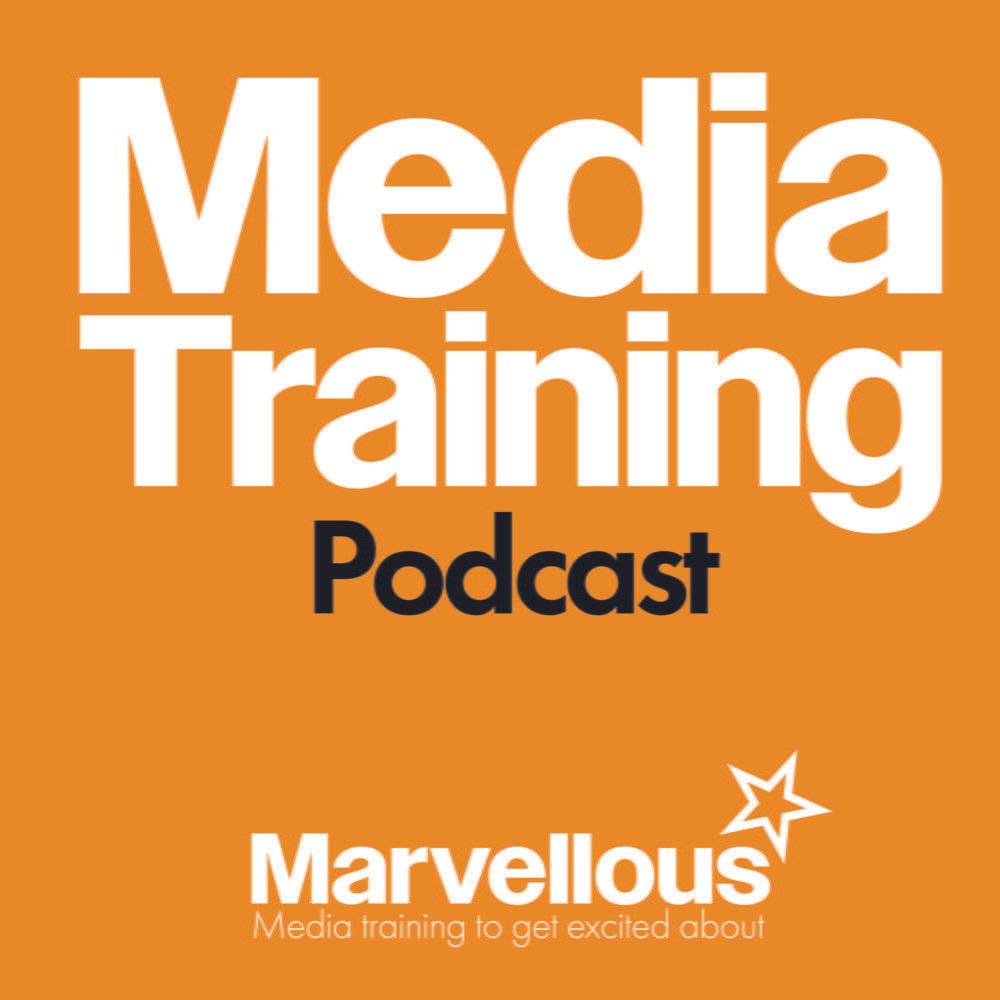
Media interview preparation checklist

How to create a founders’ origin story

How to answer hostile or negative questions from a journalist

How to be authentic in a media interview

Crisis Management: How to write a holding statement
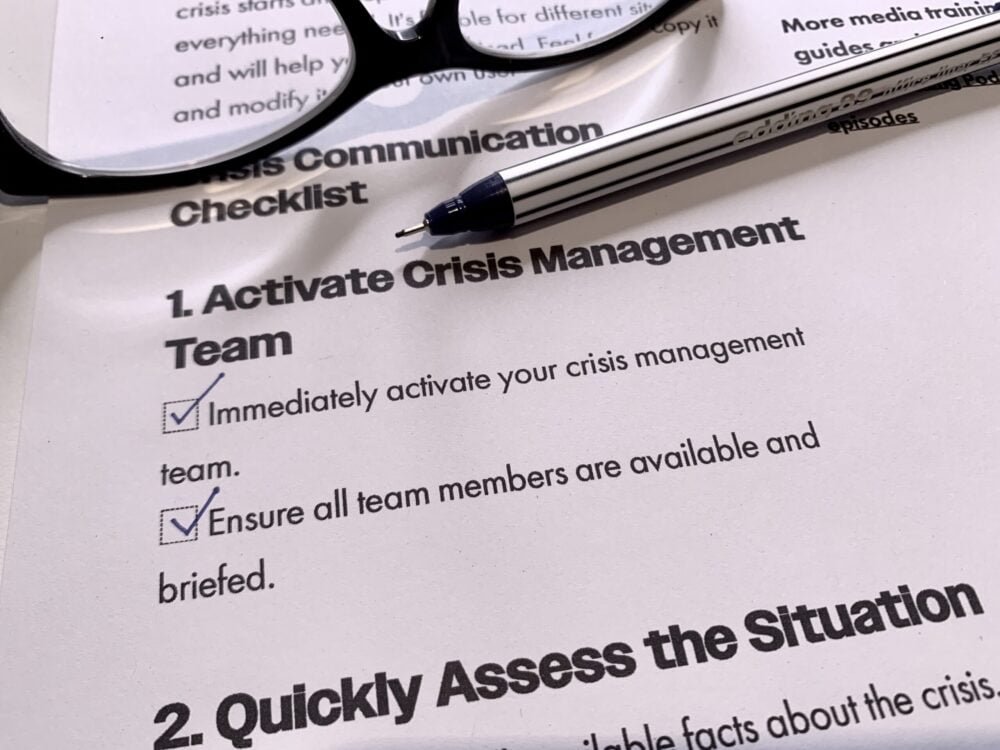
Crisis communications checklist

How to create a successful media soundbite
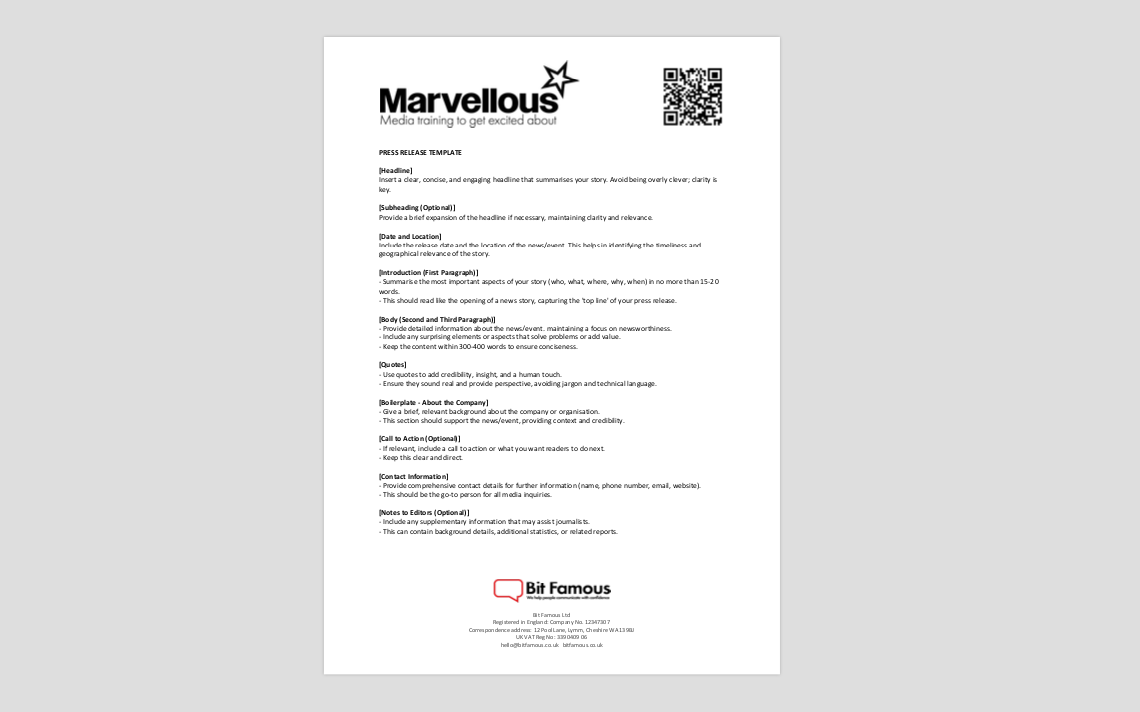
Free press release template (Word)
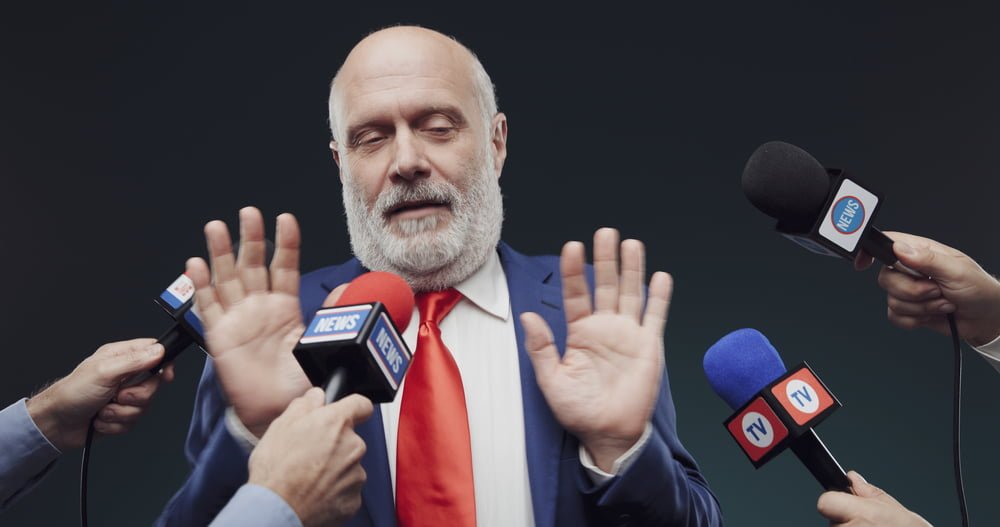
How do you handle a media question you don’t want to answer?
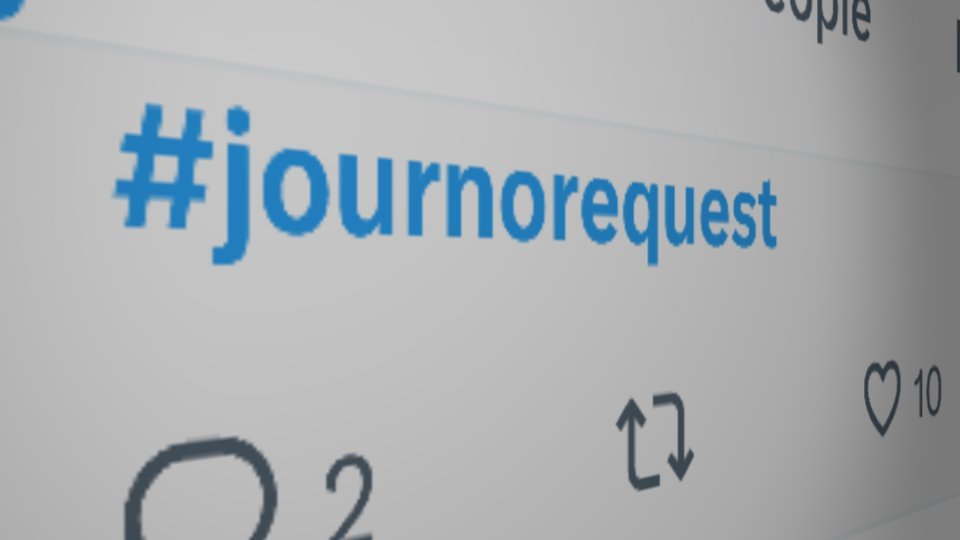
How to use #JournoRequest to get media attention for my business

How do I prepare for a TV interview online using Zoom, Teams or Skype?

How to appear on a business podcast

How to handle a difficult media interview
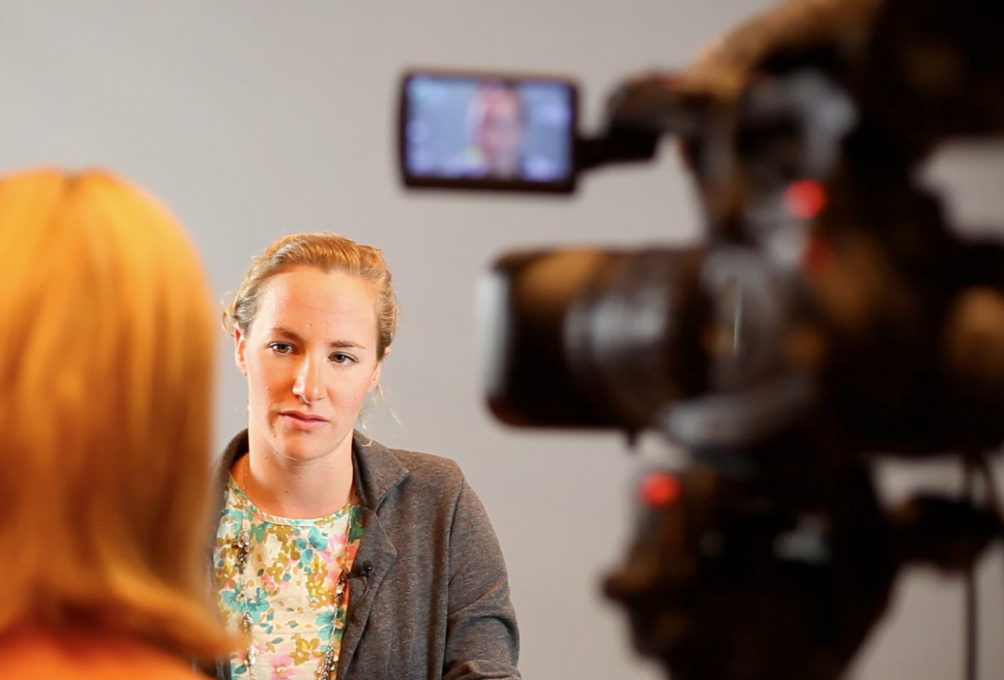
How to get featured in the media


